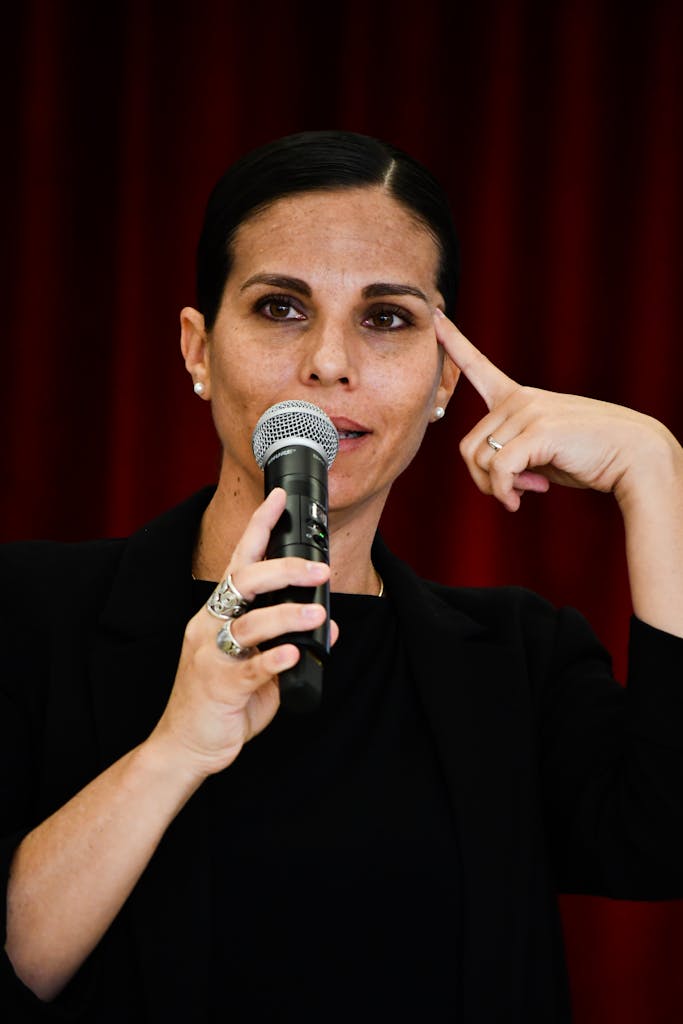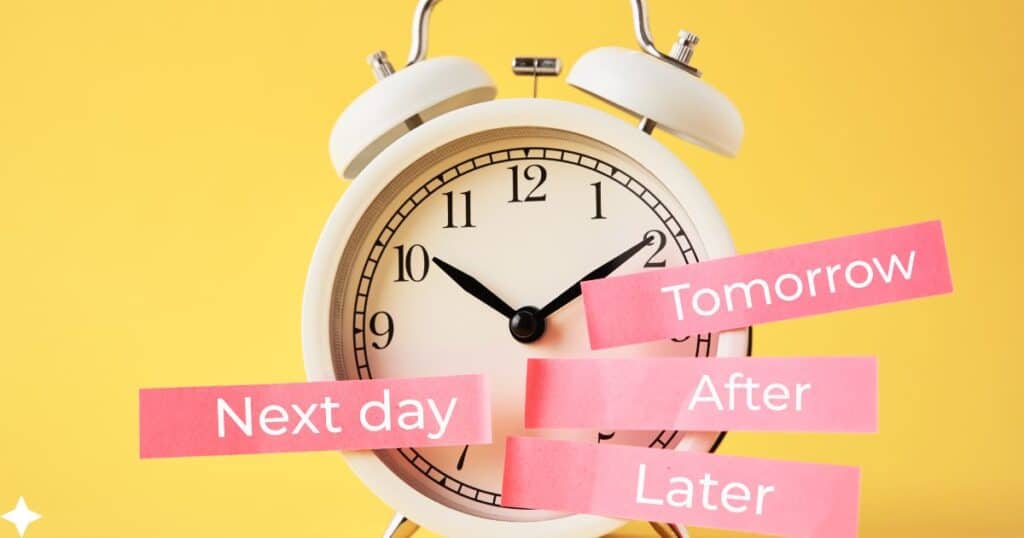Imagine this. Your company is preparing for its annual event. The team agrees: “Let’s invite a motivational speaker.” Everyone nods. Excitement builds. Then someone asks: “How much will it cost?”
Silence. No one knows.
Some assume it’s just a small token. Others worry it’s going to break the budget. And because no one is sure, people hesitate. The event loses momentum before it even begins.
I’ve seen this happen many times. For more than 20 years, I’ve spoken at schools, companies, government agencies, and organizations across the Philippines. I’ve also coached leaders and trained other speakers. I know what organizers expect—and what speakers actually deliver.
That’s why I wrote this guide. If you’re an HR manager, a school principal, or a business owner, you deserve clarity. You should know the real costs, what affects those costs, and how to choose the right speaker for your people.
Because here’s the truth: when you hire a motivational speaker, you’re not paying for one hour of talk. You’re investing in a shift—an idea, a story, a spark—that can change how people think, act, and lead long after the event is over.
Why Fees Matter (and What They Really Buy You)
Let’s clear something right away: a motivational speaker’s fee is not just a “talent fee.” It’s not the same as paying for a singer’s performance or renting a venue.
A motivational speaker fee is the professional charge for preparing and delivering a talk that inspires, informs, and moves people to act. On paper, it may look like you’re paying for 45 minutes to one hour on stage. But in reality, you’re paying for something much bigger. You pay for years of learning, dozens of experiences, and the ability to shift a room full of people in a single moment.
Think of it this way. When you invite a speaker, you’re not buying time—you’re buying transformation.
The Hidden Work You Don’t See
Here’s what most people miss. Long before a speaker arrives at your event, preparation is already happening:
- Researching your audience. A good speaker studies your organization, your challenges, and your culture.
- Crafting the message. They don’t just recycle old slides. They adapt stories and lessons so your people feel, “This is for us.”
- Rehearsing delivery. They refine the timing, examples, and punchlines so the message is clear, emotional, and memorable.
- Carrying credibility. A seasoned speaker brings trust signals: books written, leaders trained, organizations served. These reassure your audience that the message is grounded, not guesswork.
So when the speaker steps on stage, it may look effortless. But behind that one hour are years of practice, study, and tested wisdom.
A Contrast Worth Noting
Here’s the danger of seeing fees as “just the speech.”
- A cheaper option may give you entertainment—funny stories, big energy—but no lasting value.
- A professional speaker costs more, but they leave your people with tools, stories, and lessons they can use long after the applause fades.
One HR director once told me after a conference, “Jef, the talk was only an hour, but our managers were still quoting you in meetings months later.” That’s when you realize: the fee isn’t about minutes—it’s about impact.
And that impact is what makes the right speaker worth every peso.
The Usual Fee Ranges in 2025 (Philippines Context)
Now let’s talk numbers. If you’re planning an event in the Philippines this 2025, here’s what you can expect when it comes to motivational speaker fees.
Entry-Level Speakers: ₱10,000 – ₱30,000
These are often new speakers—students, young professionals, or part-time trainers. They’re enthusiastic, and their talks may be inspiring, but they usually lack long-term experience. If you’re hosting a small school event or a barangay seminar, this range might work.
But be cautious: some are still “finding their voice.” You may get energy, but not always substance.
Mid-Level Speakers: ₱30,000 – ₱60,000
This is where many experienced speakers for schools, LGUs, and smaller companies fall. They’ve built enough credibility to hold an audience, and their fees often include preparation and travel within Metro Manila.
For example, one provincial college invited a speaker in this range for their graduation program. Students loved the stories, but the organizers later realized the talk was very generic—it could’ve been delivered anywhere.
Senior Speakers: ₱60,000 – ₱100,000+
These are seasoned professionals with a proven track record. They’ve spoken to dozens of organizations. They have published works or signature programs. And they often customize their message to your event. Corporations often book speakers in this bracket for sales rallies, leadership conferences, or annual general assemblies.
This is also where many clients expect me when I do a keynote. At this level, you’re not just buying inspiration—you’re investing in relevance. The stories, case studies, and lessons connect directly to your organization’s needs.
Celebrity or International Speakers: ₱150,000+
When you invite a well-known TV personality, athlete, or international figure, expect rates beyond ₱150,000. Their appeal often lies in name recognition, and while they can draw crowds, it doesn’t always mean deeper learning.
A Better Way to See Value
Here’s the contrast most decision makers miss.
At Strategic Learning, our standard workshop rates are ₱45,000 for a half-day program with just 20 participants. That’s already a worthwhile investment because of the depth and focus.
Now imagine a motivational speaker addressing more than 200 attendees in a 90-minute keynote. Suddenly, the cost per person drops drastically.
Think of it like this:
- A Sarah Geronimo concert ticket can cost ₱4,000 for just two hours of entertainment.
- A stand-up comedian may charge ₱200,000 for one show.
- Meanwhile, a motivational speaker charging ₱150,000 is actually a bargain. Especially if the message ignites your team and helps increase your company’s revenue by even 30 percent.
Entertainment has its place. But ask yourself: Would you book a stand-up comedian for your sales rally? Probably not. You know what works better: a speaker who not only entertains but also equips, inspires, and directs your people toward results.
That’s the real value of motivational speaking.

What Affects the Price
Not all motivational speaker fees are the same. Even two speakers with the same experience can charge very differently. Why? Because several factors shape the price. If you’re booking a speaker in 2025, here are the main things that affect the fee.
1. Event Size and Prestige
A small school program is very different from a national sales rally. The bigger the event, the higher the expectations—and the higher the fee.
Example: A talk in front of 200 graduating students in a gym will cost less than a keynote at a corporate summit with 2,000 employees in a five-star hotel. Why? Because with scale comes pressure: the message has to land for a larger, more diverse audience.
2. Customization of the Talk
Some speakers arrive with a “canned speech”—the same slides, the same jokes, the same stories for every crowd. These are cheaper, but they often feel generic.
A professional speaker spends hours studying your company’s goals, culture, and pain points. They tailor their message so that when your people hear it, they think, “This is exactly about us.” That level of customization takes time—and yes, it costs more.
3. Time and Effort Required
There’s a difference between a 45-minute keynote and a full-day engagement. But it’s not just about minutes. A 90-minute keynote may require weeks of research, calls with your team, and rehearsal. A workshop, meanwhile, adds design, facilitation, and materials. The deeper the involvement, the higher the price.
4. Travel and Logistics
If the speaker has to fly to your city, block two days for travel, or adjust to provincial schedules, that affects the fee. Think of it this way: when you invite someone to speak in Bohol or Davao, you’re not just booking their time on stage. You’re booking the days they spend with you.
5. Speaker Reputation and Track Record
This is often the biggest factor. A speaker with 20 years of experience, published books, and a track record of speaking for top companies will naturally cost more than a new graduate with passion but little proof.
And reputation isn’t just vanity—it’s a trust signal. When your people hear a name they respect, they listen differently.
A Contrast Worth Noting
Imagine two scenarios:
- Option A: You book a cheaper speaker for ₱20,000. They give an energetic talk, but a week later, no one remembers the message.
- Option B: You invest ₱120,000 in a seasoned speaker who customizes their talk to your sales rally. Six months later, your team is still applying the lessons—and your revenue is up 30 percent.
The difference isn’t the length of the talk. It’s the depth of the impact.
👉 In short: speaker fees are shaped by scale, customization, effort, logistics, and credibility. But the real question isn’t “How much does it cost?” The better question is “What will this speaker leave behind?”
How to Choose the Right Speaker for Your Budget
Now that you know the ranges and what shapes the price, the next challenge is deciding: Who should we hire?
Hiring a motivational speaker is not about picking the cheapest—or the most expensive. It’s about choosing the right fit for your goals, people, and budget. Here’s how to do it.
Step 1: Clarify Your Event Goal
Before you ask “How much?” ask “Why?”
- Do you want to inspire and energize? (perfect for rallies and kick-offs)
- Do you want to teach new mindsets or skills? (choose a resource/leadership speaker who also trains)
- Do you want to shift culture? (pick someone who blends motivation with strategy)
👉 If your event goal is fuzzy, even the best speaker won’t land.
Step 2: Shortlist by Relevance, Not Just Cost
Look for speakers who understand your industry or challenge. A school graduation needs a different voice than a pharmaceutical sales convention.
Story: An insurance company once booked a “celebrity” speaker because of name recognition. The talk was funny, but the team left with no direction. The next year, they booked a leadership speaker who tailored the talk to sales targets—and performance shot up.
Step 3: Check Trust Signals
Don’t just believe the brochure. Look for signs of credibility:
- Who have they worked with before? (logos, case studies, testimonials)
- Do they have books, articles, or tools to back up their message?
- Have they been invited back by the same client (a big sign they deliver real value)?
For example, at Strategic Learning, we share not only our rates but also client stories and frameworks. Decision makers need proof, not promises.
Step 4: Ask What’s Included
A good speaker fee should cover more than a one-hour talk. Ask:
- Do they customize their message?
- Will they do a call with you before the event?
- Do they provide slides, handouts, or follow-up materials?
- Are travel and accommodations included?
The more transparent the inclusions, the easier it is to compare value.
Step 5: Weigh Cost vs. Value
Here’s the real filter: don’t just ask, “How much will this cost us?” Ask, “What will this investment create for our people?”
If a ₱150,000 speaker helps your sales team hit 30% more revenue, was that expensive—or was that the cheapest growth strategy you ever had?
Quick Decision Checklist
Before you book, answer these five:
- What’s our event goal?
- Does this speaker fit our audience?
- Can we see their track record?
- Do we know what’s included in the fee?
- Are we paying for entertainment—or for transformation?
If you can answer confidently, you’re ready to book the right speaker.
Worth It or Not? The Questions Every Organizer Asks
Whenever people search for motivational speakers, the same questions keep coming up. Let’s answer them clearly so you can make smarter choices.
Are Motivational Speakers Worth It?
Yes—if you choose based on alignment, not hype. A good speaker doesn’t just make people clap; they move them to act. The measure of worth is not applause, but application.
How Much Do Filipino Motivational Speakers Charge?
As we’ve seen, anywhere from ₱10,000 to ₱150,000+ depending on experience, customization, and reputation. The key is not just the price tag but what stays with your people after the talk.
What’s the Difference Between a Resource, Motivational, and Leadership Speaker?
- Motivational speakers inspire action.
- Resource speakers deliver knowledge and frameworks.
- Leadership speakers focus on culture and direction. 👉 Sometimes, one person can play all three roles. What matters is clarity on what you need.
Can Schools Afford Motivational Speakers?
Yes. Many speakers offer discounted rates for schools, graduations, and youth programs. Some even do pro-bono talks for causes close to their heart. Don’t assume it’s out of reach—ask.
Do Online Talks Cost Less?
Usually, yes. Without travel, accommodations, or blocked days, online speaking fees are lower. But remember: the impact is also different. Nothing beats the energy of a live room.
A Quick Contrast to Remember
- Entertainment: You clap, you laugh, you go home.
- Motivation: You reflect, you act, you grow. Both have value—but for organizations that want change, motivation creates more return than entertainment ever will.
👉 This is why motivational speaking isn’t an expense. It’s an investment in shifts that outlast the event itself.
Trust Signals That Matter
When you hire a motivational speaker, you’re not just buying words. You’re trusting someone with your people, your culture, and your event’s reputation. That’s why trust signals are non-negotiable.
1. Track Record With Organizations
A reliable speaker has worked with schools, companies, and government agencies—not just once, but repeatedly. Many of my engagements come from clients who invite me back because their teams still remember and apply the lessons months later. That repeat booking is the strongest proof that value was delivered.
2. Published Work and Frameworks
A seasoned speaker doesn’t only speak—they also write, design tools, and create frameworks. My books like Start With One Shift, Work Like an Artist, and The Ownership Path give audiences more than inspiration. They offer step-by-step ways to act. When a speaker brings original material, your audience gets something to hold on to long after the talk ends.
3. Client Stories and Testimonials
Nothing builds trust faster than the words of others. Over the years, I’ve been privileged to work with leaders in hospitality, education, government, and corporate teams who later shared how their people performed better after our sessions. These stories matter more than any fee sheet.
4. Clear, Transparent Offers
At Strategic Learning Consultants, we’re upfront: workshops start at ₱45,000 for a half-day program with 20 participants. For larger motivational talks, we scale based on your audience size and goals. Transparency isn’t just about pricing—it’s about making sure you know what you’re investing in and what to expect in return.
The Signal You Need to See
A motivational speaker’s real credibility doesn’t come from big claims. It comes from consistency: showing up prepared, delivering with purpose, and leaving behind a message your people still use the next day.
👉 That’s the kind of trust signal decision makers should look for—and the kind I’ve built over 20 years of speaking and training in the Philippines.
If you’d like to explore further, you can learn more at jefmenguin.com. Or discover how we design leadership training at strategiclearning.asia.



